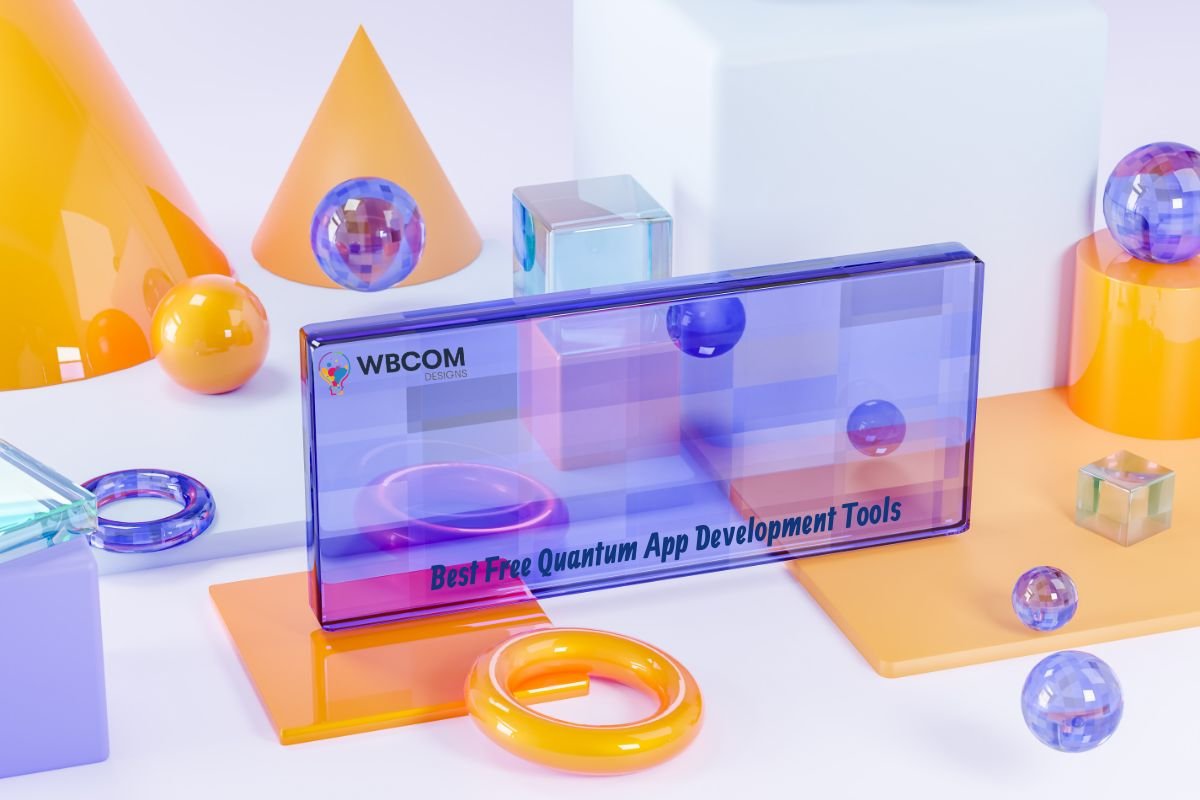Quantum App Development Tools represent a crucial gateway into the rapidly evolving field of quantum computing. As the demand for quantum solutions surges across industries, developers seek accessible platforms to delve into quantum programming, algorithm design, and experimentation. These tools serve as the foundation for harnessing the unique power of quantum mechanics, empowering users to explore quantum algorithms, simulate quantum systems, and ultimately contribute to groundbreaking advancements in computation.
In this era of quantum exploration, numerous free quantum app development tools have emerged, each offering distinct features and capabilities to cater to the diverse needs of developers and researchers. From comprehensive quantum development kits to specialized quantum programming languages and simulators, these tools provide an array of resources for users to embark on their quantum computing journey. As we delve into the realm of free quantum app development tools, let us explore the key players shaping the landscape of quantum programming and the transformative potential they hold for the future of computing.
Table of Contents
ToggleUnderstanding Quantum Computing
Quantum computing is a cutting-edge field of computer science and physics that utilizes the principles of quantum mechanics to perform computations in fundamentally different ways than classical computers. At its core, quantum computing leverages the unique properties of quantum bits, or qubits, which can exist in multiple states simultaneously thanks to the phenomenon of superposition. Additionally, qubits can be entangled, meaning the state of one qubit can instantaneously affect the state of another, regardless of the distance between them.
These properties enable quantum computers to process vast amounts of data and perform complex calculations at speeds exponentially faster than classical computers. Quantum computing holds the potential to revolutionize various industries by tackling problems that are currently intractable for classical computers, such as cryptography, drug discovery, optimization, and machine learning. Despite still being in its early stages, quantum computing has garnered significant attention and investment from governments, research institutions, and technology companies worldwide, signaling its immense promise for the future of computing and scientific discovery.
Also Read: Building a Roadmap for Digital Maturity: Top 5 Tips
The Need for Quantum App Development Tools
The need for quantum app development tools stems from several key factors:
Complexity of quantum programming
- Quantum programming involves working with quantum bits or qubits, which behave fundamentally differently from classical bits.
- Unlike classical bits that can only exist in a state of 0 or 1, qubits can exist in a superposition of both states simultaneously. This property allows quantum computers to perform many calculations at once.
- Quantum algorithms often require manipulating qubits through operations known as quantum gates, which can be counterintuitive compared to classical logic gates.
- Quantum mechanics introduces concepts such as entanglement, where the state of one qubit is dependent on the state of another, regardless of distance. Understanding and harnessing these phenomena is essential for effective quantum programming.
Importance of accessible development tools
- Accessible development tools are crucial for democratizing quantum programming and making it accessible to a wider audience.
- These tools typically include integrated development environments (IDEs), simulators, libraries, and documentation designed to assist developers in writing, debugging, and optimizing quantum code.
- User-friendly interfaces and intuitive design are essential for lowering the barrier to entry, allowing developers from diverse backgrounds to engage with quantum computing.
- Accessible tools also facilitate collaboration and knowledge exchange within the quantum community, fostering innovation and accelerating progress in the field.
Advantages of free tools for learners and researchers
- Free development tools eliminate financial barriers, enabling learners and researchers with limited resources to explore quantum programming.
- Open-source software and free resources encourage experimentation and innovation by allowing individuals to access cutting-edge technologies without upfront costs.
- Free tools often come with extensive documentation, tutorials, and community support, making it easier for newcomers to get started with quantum programming.
- Researchers can use free tools to prototype quantum algorithms, simulate quantum systems, and conduct experiments without the need for expensive hardware.
Also Read: How do you ask someone to complete a feedback survey?
Best Free Quantum App Development Applications
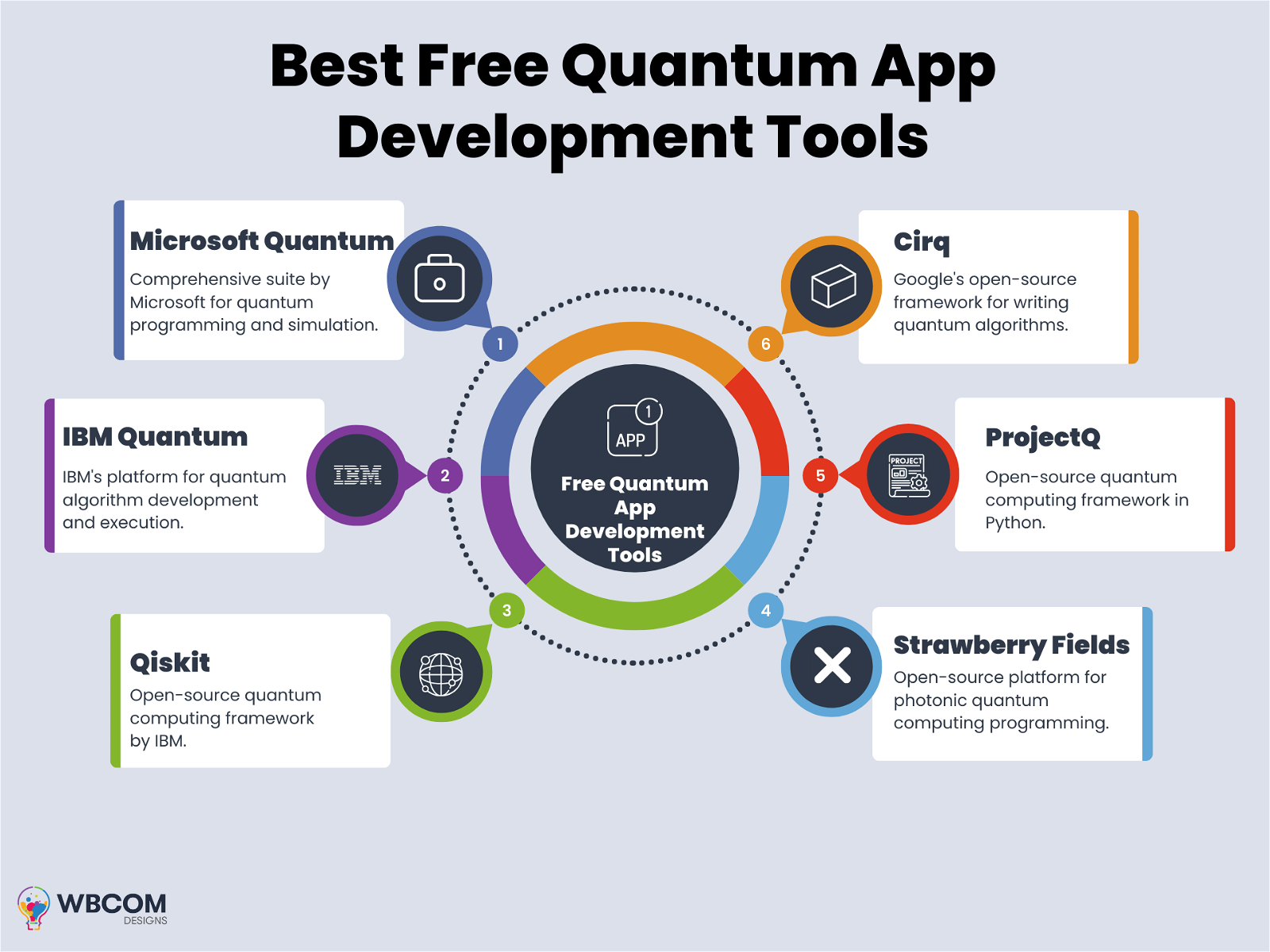
Here are seven of the best free quantum app development applications:
1. Microsoft Quantum Development Kit
The Microsoft Quantum Development Kit is a comprehensive suite of tools and resources designed for quantum development, encompassing both software and simulators to facilitate quantum computing exploration and application development. At its core, the development kit includes the Q# programming language, a domain-specific language optimized for expressing quantum algorithms and operations. Q# is designed to seamlessly integrate classical and quantum computing concepts, allowing developers to write quantum code alongside classical code within the same environment.
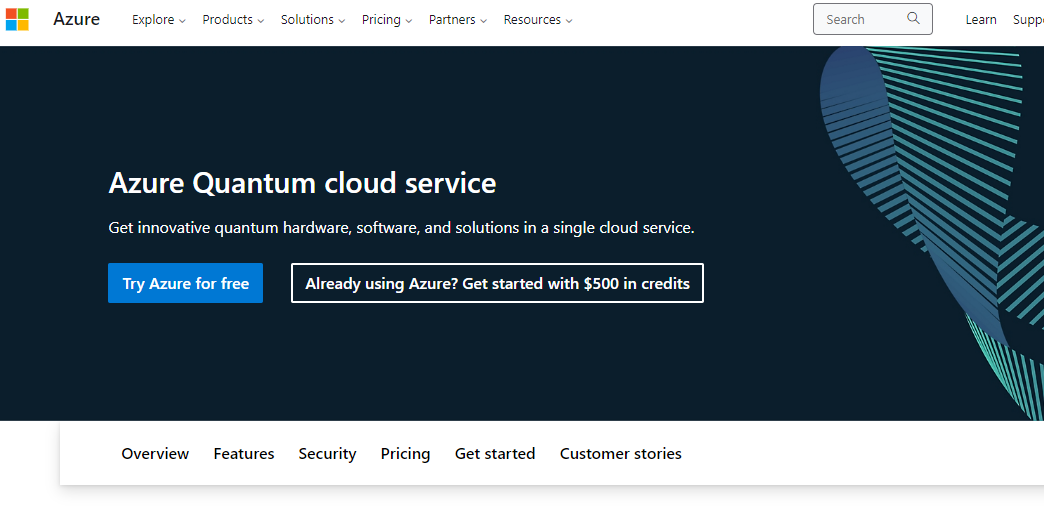
In addition to the Q# language, the Microsoft Quantum Development Kit provides a set of quantum simulators that enable developers to simulate quantum algorithms and experiment with quantum computing concepts without the need for access to physical quantum hardware. These simulators provide a valuable environment for testing and debugging quantum code, as well as for exploring the behavior of quantum systems under various conditions.
Also Read: 10 Best Open-Source Testing Tools Of 2024
2. IBM Quantum Development Kit
The IBM Quantum Development Kit is a comprehensive quantum development platform provided by IBM, designed to empower developers and researchers to explore the possibilities of quantum computing. This kit offers a suite of tools, simulators, and access to real quantum computers through the IBM Quantum Experience, providing a seamless environment for quantum programming and experimentation.
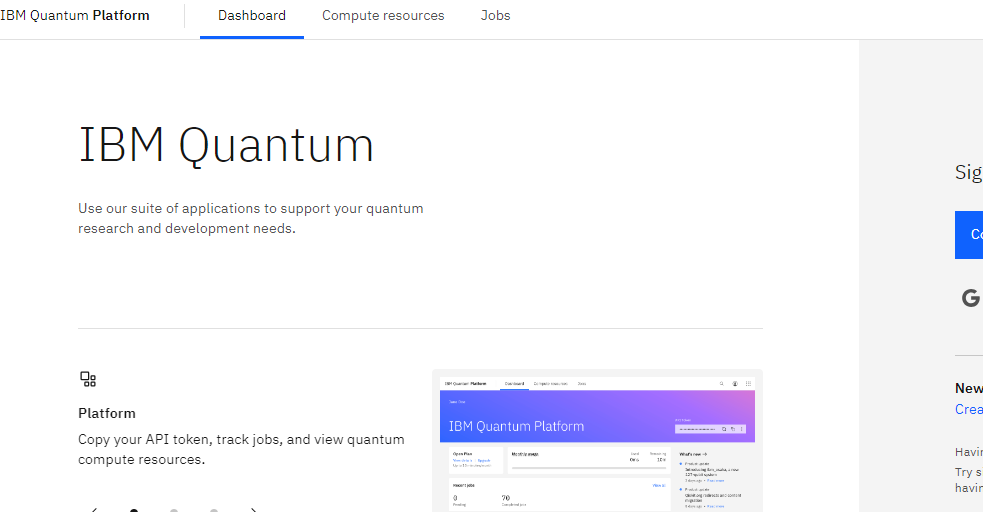
At the heart of the IBM Quantum Development Kit is Qiskit, an open-source quantum computing framework developed by IBM. Qiskit allows users to write quantum algorithms using Python, providing a familiar programming language for both novice and experienced developers. With Qiskit, users can design quantum circuits, simulate their behavior on classical computers, and execute them on real quantum hardware available through the IBM Quantum Experience.
The IBM Quantum Experience provides access to a network of quantum computers hosted by IBM, allowing users to run their quantum algorithms on actual quantum processors. This hands-on experience with real quantum hardware is invaluable for understanding the practical challenges and opportunities of quantum computing
3. Qiskit
Qiskit is an open-source quantum computing framework developed by IBM. It offers a comprehensive suite of tools and libraries designed to facilitate quantum circuit design, simulation, and execution. Qiskit provides a user-friendly environment for both beginners and experienced developers to explore and experiment with quantum computing concepts.
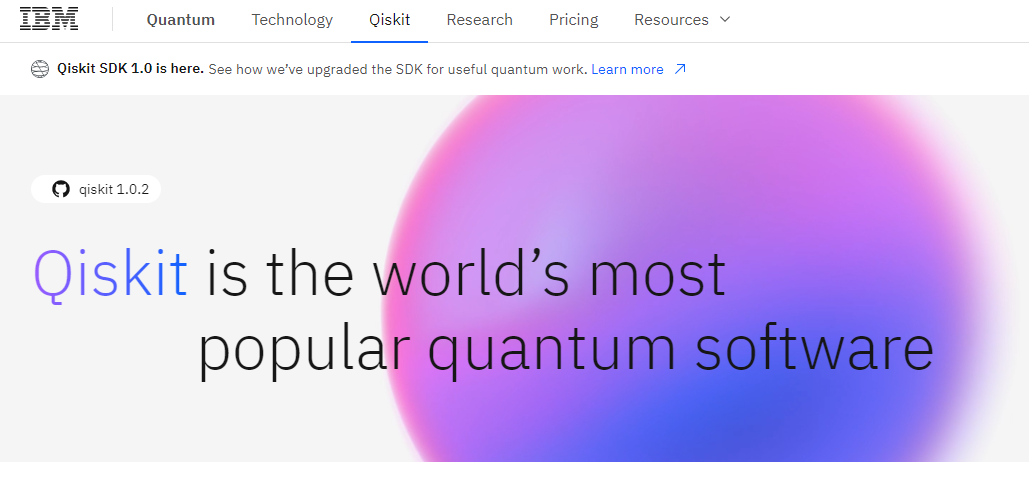
One of the key features of Qiskit is its modular architecture, which allows users to access different components of the framework based on their specific needs. This includes tools for quantum circuit construction, visualization, optimization, and execution on quantum hardware or simulators. Qiskit also supports various quantum algorithms and protocols, making it a versatile platform for quantum research and application development.
Also Read: Using Proxies for Market Research in China
4. ProjectQ
ProjectQ is an open-source quantum computing framework written in Python, designed to facilitate the development and simulation of quantum algorithms. It provides a user-friendly interface for writing quantum programs and simulating quantum circuits, making it accessible to both beginners and experienced developers. With ProjectQ, users can harness the power of quantum computing to solve complex problems in fields such as cryptography, optimization, and machine learning.

One of the key features of ProjectQ is its flexibility and extensibility. It offers a wide range of functionalities for working with quantum circuits, including support for various quantum gates, quantum operations, and quantum algorithms. Users can easily customize and extend ProjectQ to suit their specific needs, making it a versatile tool for quantum programming.
5. Forest SDK by Rigetti Computing
The Forest SDK by Rigetti Computing is a comprehensive software development kit tailored for quantum computing enthusiasts, researchers, and developers. At the heart of the Forest SDK lies the Quil programming language, specifically designed for expressing quantum algorithms in a high-level, readable format. Quil allows users to define quantum circuits, apply quantum gates, and perform quantum operations, making it an intuitive language for quantum programming.
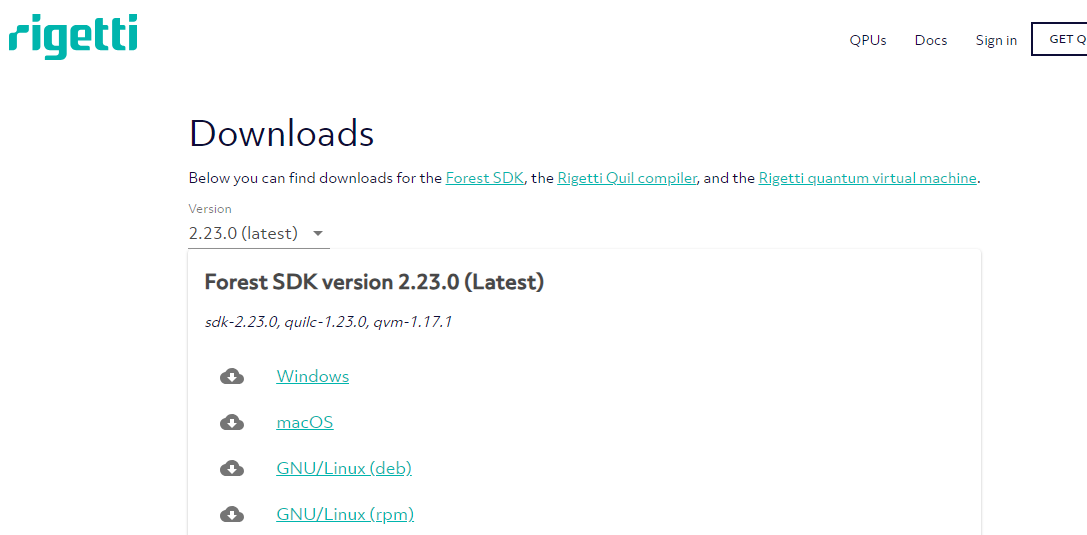
One of the standout features of the Forest SDK is its robust set of quantum simulators. These simulators enable users to simulate quantum circuits and algorithms on classical computers, providing valuable insights into quantum behavior and algorithm performance. Whether you’re a novice exploring the basics of quantum computing or an experienced researcher prototyping complex quantum algorithms, the Forest SDK’s simulators offer a versatile platform for experimentation and development.
6. Strawberry Fields
Strawberry Fields is a cutting-edge, open-source quantum programming platform developed by Xanadu, with a primary focus on quantum photonic circuits and quantum machine learning. Built on Python, Strawberry Fields provides developers and researchers with a comprehensive toolkit for quantum computing experimentation and application development.
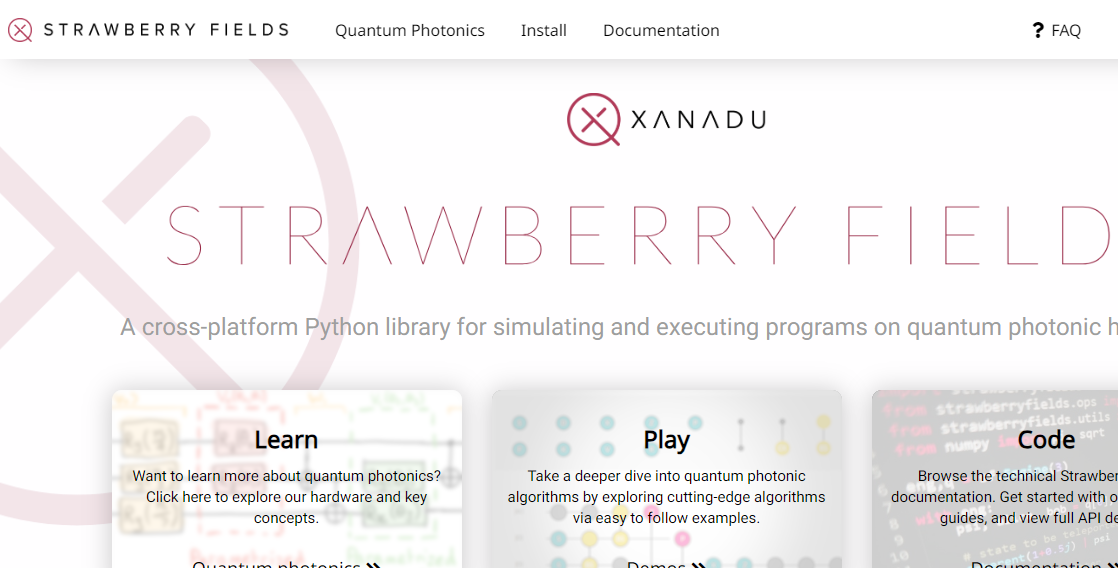
One of the standout features of Strawberry Fields is its emphasis on quantum photonic circuits, which utilize photons as qubits for quantum information processing. This approach offers unique advantages, including high coherence times and low error rates, making it particularly well-suited for applications in quantum communication, quantum cryptography, and quantum computing.
7. Cirq
Cirq is an open-source quantum computing framework developed by Google, aimed at facilitating the writing, simulation, and execution of quantum circuits. As one of the leading platforms in the field, Cirq provides a comprehensive suite of tools and libraries that empower researchers, developers, and enthusiasts to explore the potential of quantum computing. With its Python-based programming interface, Cirq offers a familiar and accessible environment for writing quantum algorithms, making it suitable for both beginners and experienced users.
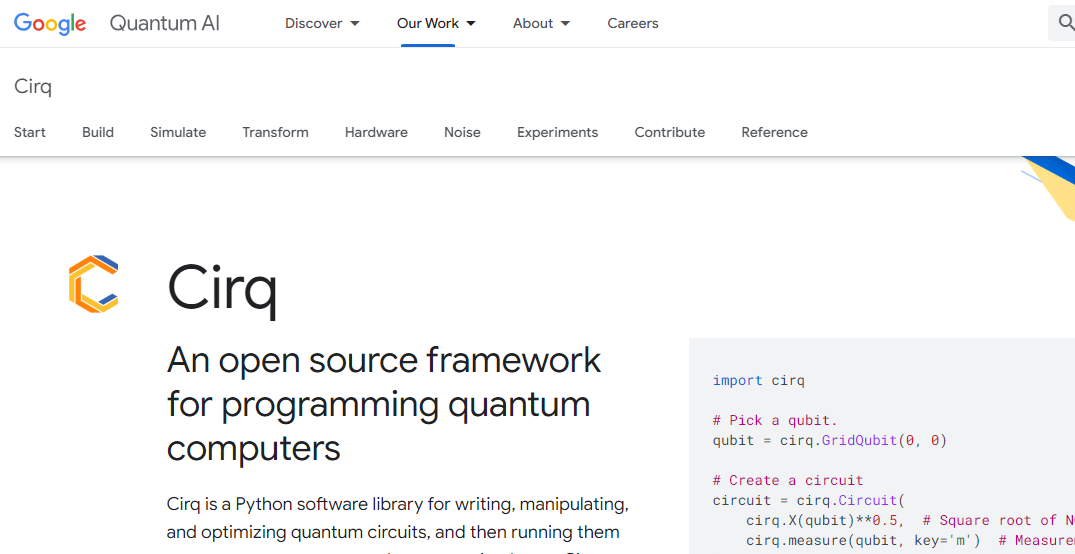
One of the key features of Cirq is its emphasis on hardware flexibility, allowing users to design circuits that can be executed on various quantum processors, including those developed by Google and other companies. This flexibility enables researchers to prototype algorithms on different quantum hardware architectures and explore the performance characteristics of different platforms.
Challenges and Future Directions
Current limitations of free quantum development tools
- Limited scalability: Many free quantum development tools are designed for small-scale simulations and prototyping, lacking support for large-scale quantum algorithms or real-world applications.
- Performance constraints: Free quantum simulators may not accurately reflect the performance of actual quantum hardware, leading to discrepancies in results.
- Lack of advanced features: Some free tools may lack advanced features or optimizations found in commercial quantum development platforms, limiting their capabilities for complex quantum applications.
- Educational resources: While many free tools offer educational resources, there may be gaps in documentation or tutorials, hindering the learning process for newcomers.
Areas for improvement and innovation
- Scalability: Future development should focus on enhancing the scalability of free quantum development tools to support larger quantum algorithms and more complex simulations.
- Performance optimization: Improving the performance of quantum simulators and compilers will be crucial for achieving accurate results and simulating larger quantum systems.
- Integration with hardware: Integrating free quantum development tools with emerging quantum hardware platforms will enable developers to transition seamlessly from simulation to execution on real quantum processors.
- Community engagement: Encouraging community contributions and collaboration will drive innovation and improvement in free quantum development tools, fostering an active and vibrant quantum programming community.
The Potential impact of quantum computing on various industries
- Cryptography: Quantum computers have the potential to break widely used cryptographic protocols, leading to the need for quantum-resistant encryption algorithms.
- Drug discovery: Quantum computing can accelerate molecular simulations and drug discovery processes, leading to the development of new pharmaceuticals and treatments.
- Optimization: Quantum algorithms can solve optimization problems more efficiently than classical algorithms, benefiting industries such as logistics, finance, and supply chain management.
- Machine learning: Quantum machine learning algorithms offer the potential to train models faster and achieve better performance on certain types of tasks, revolutionizing fields such as artificial intelligence and data analysis.
Conclusion
In conclusion, the importance of free quantum app development tools cannot be overstated. These tools play a vital role in democratizing access to quantum computing, allowing developers from diverse backgrounds to engage with this cutting-edge technology. By lowering the barrier to entry and providing accessible resources, free quantum development tools empower learners, researchers, and enthusiasts to explore the fascinating world of quantum programming.
They facilitate collaboration, innovation, and knowledge exchange within the quantum community, driving progress and advancements in the field. I encourage readers to take advantage of these tools, embark on their quantum computing journey, and contribute to the ever-growing body of knowledge in this exciting field.
Interesting Reads:
20 Ways to Drive Traffic to Your Website (Free, Paid & Hybrid)
How To Clear Browser Cache And App Cache On Android Smartphone

